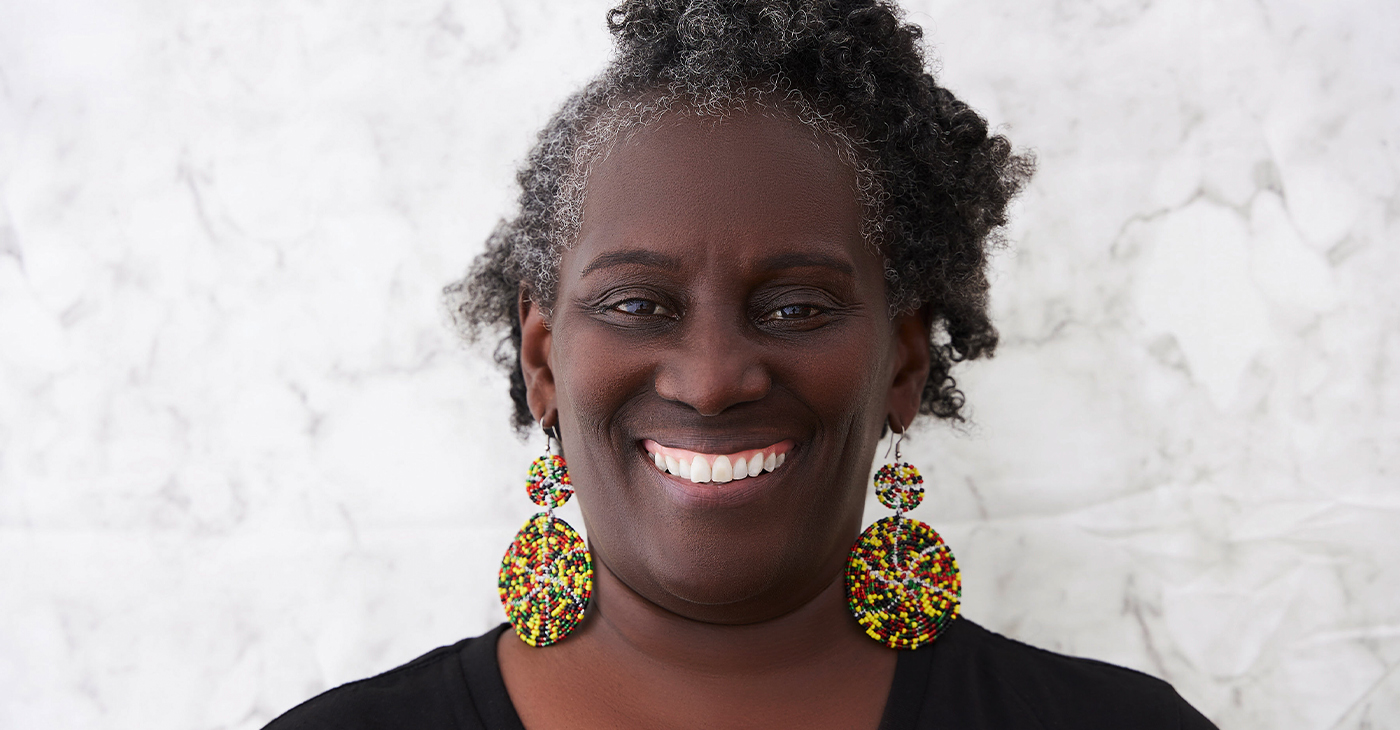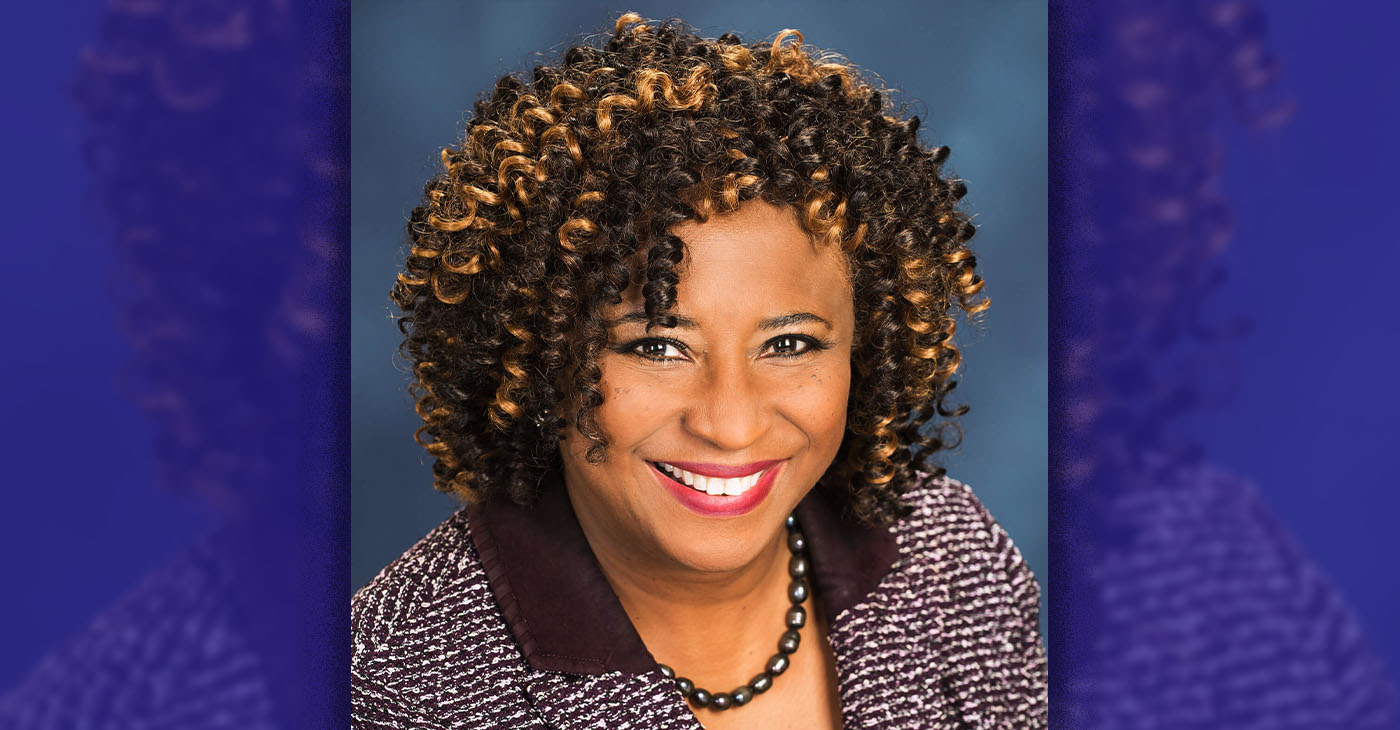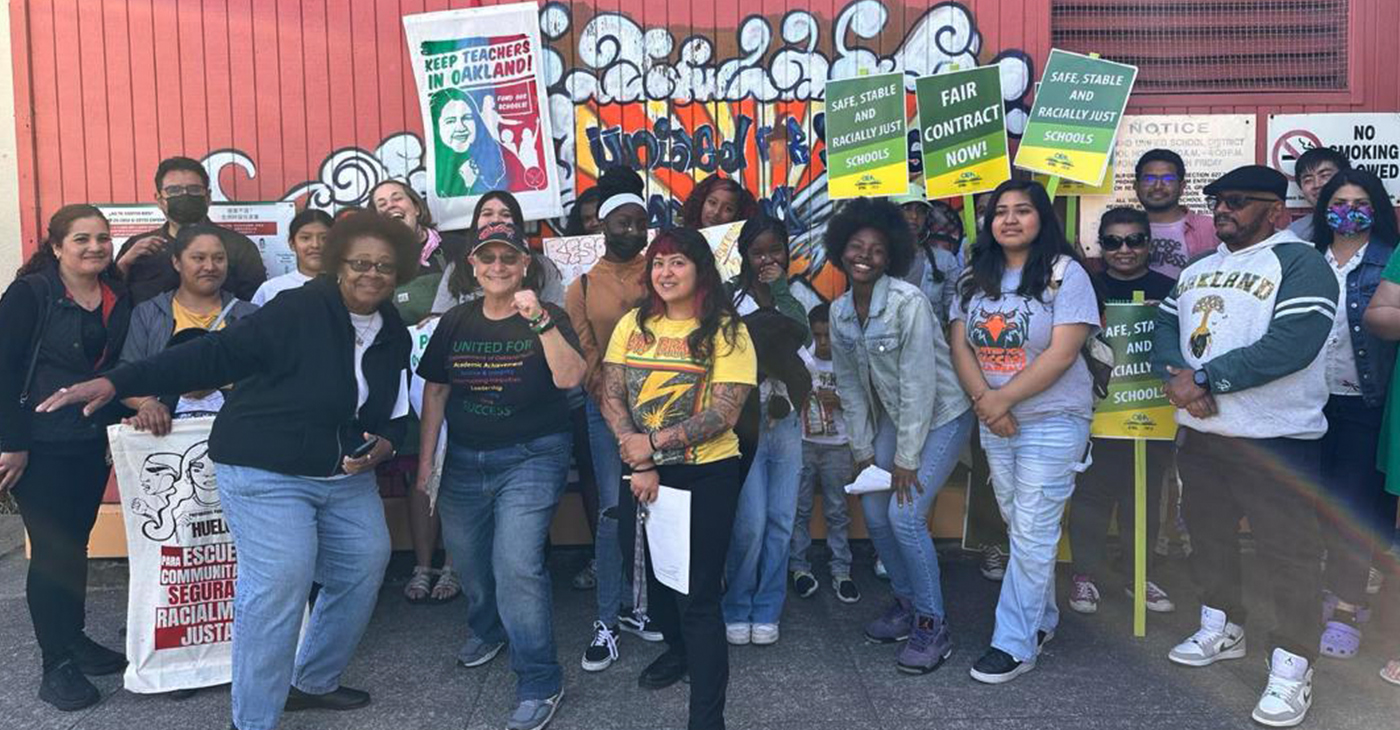Uncategorized
Uproar Over Dividing Up Youth Jobs Money
By Ken A. Epstein
A proposed decision on how to divide up federal job money for youth for the next two years is stirring charges that nonprofits that provide services to Latinos and young people in West Oakland are excluded and that the decision favors the bigger, better-funded agencies.
“When do you show fairness?” asked Ron Muhammad, a West Oakland activist, who said his community has not received federal youth job money for the past two years.
“Year after year, you always deny us, a whole district. We can’t go on and not get anything,” and Latinos in the Fruitvale District are not getting anything, he said.
Based on an application and interviews conducted by a three-member panel of the Youth Council of the Oakland Workforce Investment Board (WIB), the Youth Council and the WIB Executive Committee approved a decision at their meetings on Wednesday to give money for 2013-2015 to five groups that provide year-round job training for youth:
Youth Radio, which is requesting $208,980; CivicCorps, asking for $275,000; Lao Family, $300,000; Youth Employment Partnership (YEP), $300,000; and Youth UpRising, $300,000.
The decision still must be voted upon by the full WIB board and the City Council. The actual amount that each organization will receive must still be negotiated and depends on the new federal budget. The services that the groups will deliver also remain to be negotiated.
Groups that were not funded were First Place for Youth, asking for $294,899; GRIP/Pivotal Point, $300,000, a small nonprofit that serves youth mostly in West Oakland; and Spanish Speaking Citizens Foundation, $299,997, which serves Latino and immigrant youth in the Fruitvale.
Several speakers said that neighborhood and turf differences mean that many young people will not travel between West and East Oakland to participate in a program.
“There are real lines and different cultures between West and East Oakland. If we have a (police) crime plan that addresses West Oakland, we should have a youth job plan that addresses West Oakland,” said Marlon McWilson, member of the Alameda County Board of Education.
The Latino population in East Oakland is large and growing, and it is not being served, he said.
Henry Rosales, executive director of Spanish Speaking Citizens Foundation, criticized the board for failing to reverse years of underserving Latino youth.
“Our organization has been in the Fruitvale for 40 years. I’ve been on the Youth Council for seven years now. It’s never been addressed in my opinion,” he said.
“I …hear we are sensitive, (but) it’s not good enough. This is a systemic problem. Speaking on behalf of the Latino community, it’s insulting that (this) continues to go on when this group has the power to do something about it.”
Peter Roos, attorney and board chair of the Foundation, said the decision on dividing the money could be open to legal challenge.
He said he had heard that all the interviewees and presenters were given the questions in advance, but the Speaking Speaking Citizen’s Foundation speaker never received the questions.
It was said during a Youth Council meeting, he said, that the same questions were asked in the interviews with each agency that was presenting. “Everybody was given the same questions, so there would be parity,” Roos said he had heard.
One of the questions was, “What language skills does your staff have?”
“Nobody ever asked us that question,” Roos said. “If that is true, Spanish Speaking had its feet shackled during (the) race,” he said.
Three agencies were denied funding, not because they were not qualified, but because of a lack of sufficient federal money to serve everyone, said Al Auletta, Development/Redevelopment program manager in the City Manager’s office.
“In the ideal world we would be able to touch every neighborhood and every target group. But in the real world we have very limited funds,” he said.
Questions were raised at the meetings about why funding was limited to five agencies, not all eight.
“We had a fixed target of five organizations” to fund, said Gay Plair Cobb, WIB board member and CEO of the Oakland Private Industry Council. “Is there any reason why five was the magic number?” she asked.
Auletta said the decision was based on how much federal money the city was likely to receive.
For many years, Cobb said, “Latino youth have been underserved in both year-round and summer programs.” In addition, some Latino youth speak indigenous languages, not Spanish. “Who’s gong to be interacting with them?” she asked.
Others asked why the five agencies receiving funding had not been required to partner with smaller agencies. Several WIB board members said that possibility would be considered. “Small agencies do not just need partners. They need the financial resources to do their work,” Cobb said.
Additionally, speakers complained that only 25 percent of the scoring on the application was based on the written application. Seventy-five percent was based on the oral presentation.
“I’m very uncomfortable (supporting the decision) when so much weight is put on the presentation and interview,” said Frank Tucker, WIB member and CEO of Tucker Technology, adding that the process put the “small guys … at a disadvantage.”
“Are the (funded) providers equipped to serve the Spanish speaking community?” Tucker asked. As the proposed decision stands, it “would alienate a major portion of the youth community we are attempting to serve,” he said.
Rosales of Spanish Speaking Citizens Foundation said he previously had seen indications that funding decisions would not take into account the needs of specific communities but would end up favoring larger, better-funded nonprofits.
“We’re seeing it play out here,” he said.
Arts and Culture
Rise East Project: Part 3
Between 1990 and 2020, Oakland lost nearly half of its Black population due to economic and social forces. East Oakland, once a middle-class community, is now home to mostly Black families living in poverty.

The Black Cultural Zone’s Pivotal Role in Rebuilding Oakland’s Black Community
By Tanya Dennis
Between 1990 and 2020, Oakland lost nearly half of its Black population due to economic and social forces. East Oakland, once a middle-class community, is now home to mostly Black families living in poverty.
In 2021, 314 Oakland residents died from COVID-19. More than 100 of them, or about 33.8%, were Black, a high rate of death as Blacks constitute only 22.8% of Oakland’s population.
This troubling fact did not go unnoticed by City and County agencies, and the public-at-large, ultimately leading to the development of several community organizations determined to combat what many deemed an existential threat to Oakland’s African American residents.
Eastside Arts Alliance had already proposed that a Black Cultural Zone be established in Deep East Oakland in 2010, but 2020’s COVID-19 pandemic galvanized the community.
Demanding Black legacy preservation, the Black Cultural Zone (BCZ) called for East Oakland to be made an “unapologetically Black” business, commercial, economic development community.
Established initially as a welcoming space for Black art and culture, BCZ emerged into a a community development collective, and acquired the Eastmont police substation in Eastmont Town Center from the City of Oakland in 2020.
Once there, BCZ immediately began combating the COVID-19 pandemic with drive-thru PPE distribution and food giveaways. BCZ’s Akoma Market program allowed businesses to sell their products and wares safely in a COVID-compliant space during the COVID-19 shutdown.
Currently, Akoma Market is operated twice a month at 73rd and Foothill Boulevard and Akoma vendors ‘pop up’ throughout the state at festivals and community-centered events like health fairs.
“Before BCZ existed, East Oakland was a very depressing place to live,” said Ari Curry, BCZ’s chief experience officer and a resident of East Oakland. “There was a sense of hopelessness and not being seen. BCZ allows us to be seen by bringing in the best of our culture and positive change into some of our most depressed areas.”
The culture zone innovates, incubates, informs, and elevates the Black community and centers it in arts and culture, Curry went on.
“With the mission to center ourselves unapologetically in arts, culture, and economics, BCZ allows us to design, resource, and build on collective power within our community for transformation,” Curry concluded.
As a part of Oakland Thrives, another community collective, BCZ began working to secure $100 million to develop a ‘40 by 40’ block area that runs from Seminary Avenue to the Oakland-San Leandro border and from MacArthur Boulevard to the Bay.
The project would come to be known as Rise East.
Carolyn Johnson, CEO of BCZ says, “Our mission is to build a vibrant legacy where we thrive economically, anchored in Black art and commerce. The power to do this is being realized with the Rise East Project.
“With collective power, we are pushing for good health and self-determination, which is true freedom,” Johnson says. “BCZ’s purpose is to innovate, to change something already established; to incubate, optimizing growth and development, and boost businesses’ economic growth with our programs; we inform as we serve as a trusted source of information for resources to help people; and most important, we elevate, promoting and boosting Black folks up higher with the services we deliver with excellence.
“Rise East powers our work in economics, Black health, education, and power building. Rise East is the way to get people to focus on what BCZ has been doing. The funding for the 40 by 40 Rise East project is funding the Black Culture Zone,” Johnson said.
Alameda County
Help Protect D.A. Pamela Price’s Victory
Alameda County District Attorney Pamela Price is asking supporters of the justice reform agenda that led her to victory last November to come to a Town Hall on public safety at Montclair Presbyterian Church on July 27.

By Post Staff
Alameda County District Attorney Pamela Price is asking supporters of the justice reform agenda that led her to victory last November to come to a Town Hall on public safety at Montclair Presbyterian Church on July 27.
Price is facing a possible recall election just six months into her term by civic and business interests, some of whom will be at the in-person meeting from 6:00-9:00 p.m. at 5701 Thornhill Dr. in Oakland.
“We know that opponents of criminal justice reform plan to attend this meeting and use it as a forum against the policies that Alameda County voters mandated DA Price to deliver. We cannot let them succeed,” her campaign team’s email appeal said.
“That’s why I’m asking you to join us at the town hall,” the email continued. “We need to show up in force and make sure that our voices are heard.”
Price’s campaign is also seeking donations to fight the effort to have her recalled.
Her history-making election as the first African American woman to hold the office had been a surprise to insiders who had expected that Terry Wiley, who served as assistant district attorney under outgoing D.A. Nancy O’Malley, would win.
Price campaigned as a progressive, making it clear to voters that she wanted to curb both pretrial detention and life-without-parole sentences among other things. She won, taking 53% of the vote.
Almost immediately, Price was challenged by some media outlets as well as business and civic groups who alleged, as she began to fulfill those campaign promises, that she was soft on crime.
On July 11, the recall committee called Save Alameda for Everyone (S.A.F.E.) filed paperwork with the county elections office to begin raising money for the next step toward Price’s ouster: gathering signatures of at least 10% of the electorate.
S.A.F.E. has its work cut out for them, but Price needs to be prepared to fight them to keep her office.
In a separate sponsored letter to voters, Price supporters wrote:
“We know that you supported DA Price because you believe in her vision for a more just and equitable Alameda County. We hope you share our belief that our criminal justice system has to be fair to everyone, regardless of their race, gender, ethnicity, religion, or socioeconomic status.
“The Republican-endorsed effort is a blatant attempt to overturn the will of the voters and a waste of time and money. It is an attempt to silence the voices of those who want real justice. We cannot let these election deniers succeed.
“Will you make a donation today to help us protect the win?
“Please watch this video and share it with your friends and family. We need to stand up to the sore losers and protect the win. Together, we can continue to make Alameda County a more just, safe and equitable place for everyone.”
For more information, go to the website: pamelaprice4da.com
or send an e-mail to info@pamelaprice4da.com
Bay Area
Oakland Teachers Walk Out
After negotiating late into the night and months of fruitless bargaining with the Oakland Unified School District, Oakland teachers went out on strike Thursday morning. “Our (50-member) bargaining team has been working for seven months working, making meaningful proposals that will strengthen our schools for our students,” said Oakland Education Association (OEA) Interim President Ismael “Ish” Armendariz, speaking at press conference Monday afternoon.

OEA calls unfair labor practices strike after 7 months of negotiations.
By Ken Epstein
After negotiating late into the night and months of fruitless bargaining with the Oakland Unified School District, Oakland teachers went out on strike Thursday morning.
“Our (50-member) bargaining team has been working for seven months working, making meaningful proposals that will strengthen our schools for our students,” said Oakland Education Association (OEA) Interim President Ismael “Ish” Armendariz, speaking at press conference Monday afternoon.
“OUSD has repeatedly canceled bargaining sessions, has failed to offer meaningful proposals or counterproposals at a majority of the bargaining sessions and has repeatedly failed to discuss certain items,” Armendariz said.
“The days (of bargaining) have been long, and after hours of waiting, the superintendent finally showed up on Sunday night at 11:00 p.m.to meet with our team (for the first time),” he said. “(But) the district continues to come to the table unprepared, and this is unacceptable.”
“This is illegal, and OEA has filed an Unfair Labor Practice charge with the state Public Employment Relations Board (PERB). Under California law, OEA has a right to strike over unfair labor practices,” he said.
OEA represents 3,000 teachers, counselors, psychologists, speech pathologists, early childhood educators, nurses, adult education instructors and substitute teachers, serving 35,000 Oakland public school students. Other labor groups representing school employees include SEIU 1021 and construction unions.
In a press statement released on Tuesday, OUSD said it has been trying to avert a strike.
“The district will remain ready to meet with the teachers’ union at any time and looks forward to continuing our efforts to reach an agreement with OEA … We will continue to do everything possible to avoid a work stoppage.”
“Our children’s education does not need to be interrupted by negotiations with our union, especially given the major offer the District made on Monday,” other district press statements said. “We are committed to continuing to work with our labor leaders to discuss their salaries and support services for our students without the need for a strike.”
OUSD’s latest salary proposal, released this week, includes a 10% raise retroactive to Nov. 1, 2022, and a $5,000, one-time payment to all members.
OEA’s recent salary proposal asked for a 10% retroactive raise to all members, a one-time $10,000 payment to members who return for the 2023-2024 school year, and increases from $7,500 to $10,000 to salaries, based on years of experience.
In addition to pay demands, OEA is making “common good” proposals that serve families and the community, including protecting and enhancing special education programs, putting the brakes on closing schools in flatland neighborhoods, shared school leadership, safety, and support for students.
-

 Activism4 weeks ago
Activism4 weeks agoOakland Post: Week of March 27 – April 2, 2024
-

 #NNPA BlackPress4 weeks ago
#NNPA BlackPress4 weeks agoCOMMENTARY: D.C. Crime Bill Fails to Address Root Causes of Violence and Incarceration
-

 #NNPA BlackPress4 weeks ago
#NNPA BlackPress4 weeks agoMayor, City Council President React to May 31 Closing of Birmingham-Southern College
-

 #NNPA BlackPress4 weeks ago
#NNPA BlackPress4 weeks agoBeloved Actor and Activist Louis Cameron Gossett Jr. Dies at 87
-

 Community1 week ago
Community1 week agoFinancial Assistance Bill for Descendants of Enslaved Persons to Help Them Purchase, Own, or Maintain a Home
-

 Activism3 weeks ago
Activism3 weeks agoOakland Post: Week of April 3 – 6, 2024
-

 Business1 week ago
Business1 week agoV.P. Kamala Harris: Americans With Criminal Records Will Soon Be Eligible for SBA Loans
-

 Activism2 weeks ago
Activism2 weeks agoOakland Post: Week of April 10 – 16, 2024


















































